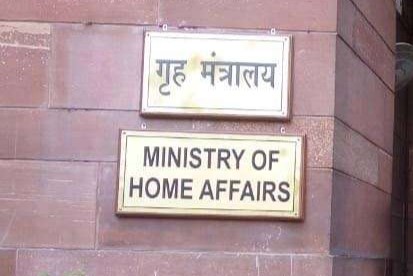New Delhi, November 7, 2024: The Ministry of Home Affairs (MHA) has issued a directive requiring all NGOs registered under the Foreign Contribution Regulation Act (FCRA) to update details of any changes in their key functionaries and members, regardless of whether their previous FCRA license application is still pending. This update should be submitted on the MHA portal within 45 days of any change, as per a notification dated October 25.
The directive impacts several prominent NGOs with pending licence renewals or fresh applications. Among them is the Centre for Policy Research, which faced FCRA licence cancellation earlier this year over alleged rule violations and has since taken the matter to court. Another NGO, the Institute of Economic Growth, experienced a similar cancellation due to non-compliance but had its licence restored after submitting the necessary documents.
The MHA clarified that if an association submits a new application while a previous one is pending, the older application will be automatically closed. Under FCRA guidelines, NGOs with cancelled or expired registrations are prohibited from receiving or using foreign funds until their certification is renewed. Additionally, all registered NGOs must keep an investment register, which can be submitted for MHA audits.
TheCSRUniverse Editorial team spoke to experts on why MHA would have taken this step. Here are the key reasons experts suggest:
Here are some of the reasons why the Ministry of Home Affairs (MHA) may have mandated reporting on changes in key members of NGOs:
- Enhanced Accountability and Transparency: Requiring updates on key functionaries ensures that the MHA has current information on the leadership of organizations that receive foreign contributions. This helps maintain accountability and transparency, particularly in organizations where leadership changes can impact decision-making and fund allocation.
- Mitigating Compliance Risks: Leadership transitions can lead to changes in governance and compliance practices. By tracking these changes, the MHA can better assess an NGO’s adherence to the Foreign Contribution Regulation Act (FCRA) guidelines, minimizing the risk of non-compliance.
- Preventing Misuse of Foreign Funds: Monitoring changes in NGO leadership helps to reduce the risk of foreign contributions being misused or misappropriated by those who may not align with the original objectives or ethical standards of the NGO.
- Facilitating Efficient Application Processing: The directive allows the MHA to streamline the approval process by automatically closing older applications if a new one is submitted while the first is still pending. This measure helps ensure that only one active application remains in the system, preventing administrative backlogs and delays in the certification process.
- Strengthening National Security: NGOs that receive foreign contributions are required to operate within certain legal frameworks, given the potential implications for national security. By keeping updated records of key individuals responsible for these organizations, the MHA can more effectively identify and address any security-related concerns that might arise with changes in leadership.
- Assuring Donor Trust: Regular updates on leadership changes contribute to donor confidence in the organization’s stability and commitment to governance. This can be especially important for foreign donors, who often look for consistent leadership and adherence to regulatory norms as signs of a trustworthy partner.




















.jpg)



